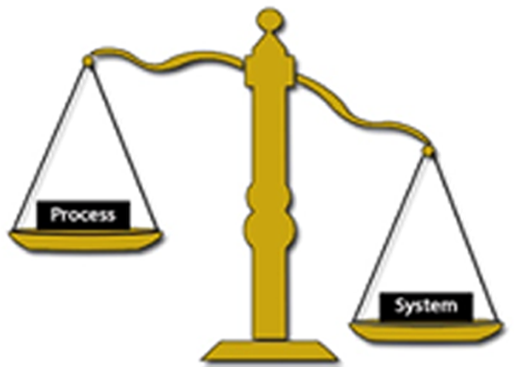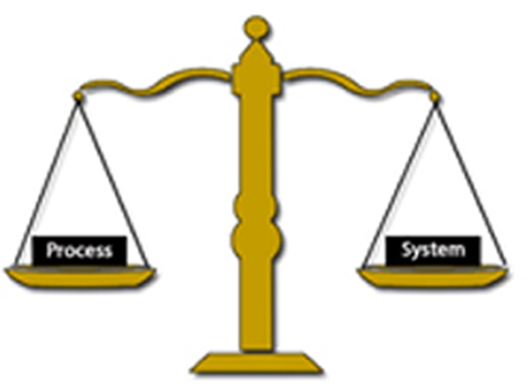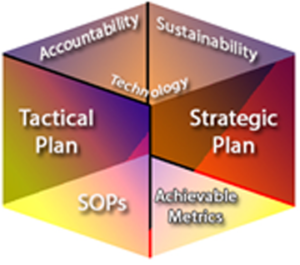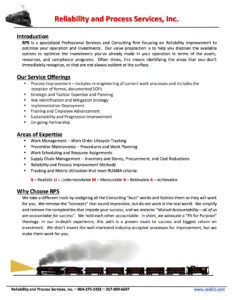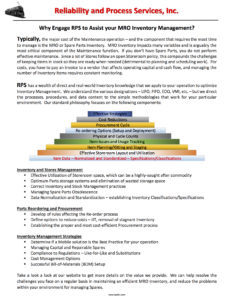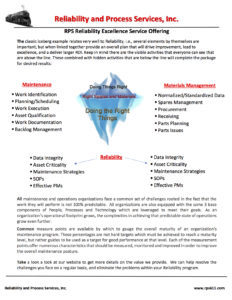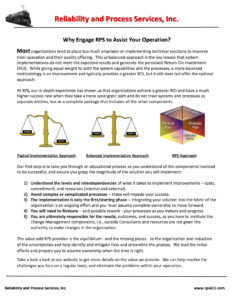

Process Improvement – Includes re-engineering of current work processes and includes the inception of formal, documented SOPs

Strategic and tactical Expertise and Planning

Risk Identification and Mitigation Strategy

Implementation Deployment

Training and Employee Advancement

Sustainability and Progressive Improvement

On-going Partnership
Most organizations tend to place too much emphasis on implementing technical solutions to improve their operation and their quality offering. This unbalanced approach is the key reason that system implementations do not meet the expected results and generate the perceived Return-On-Investent (ROI). While giving equal weight to both the system capabilities and the processes, a more balanced methodology is an improvement and typical provides a greater ROI, but it still does not offer the optimal approach.
At RPS, our in depth experience has shown us that organizations achieve a greater ROI and have a much higher success rate when they take a more synergistic path and do not treat systems and processes as separate entities, but as a complete package that includes all the other components:
Areas Of Expertise

Work Managemennt – Work Order Lifecycle Tracking

Preventive Maintenance – Procedure and Work Planning

Work Scheduling and Resource Assignments

Supply Chain Management – Inventory and Stores, Procurement, and Cost Reductions

Reliability and Process Improvement Methods

Tracking and Metric Utilization that meet RUMBA Criteria:
R – Realistic U – Understandable M – Measurable B – Believable A – Achievable
The value-add RPS Provides is the equilibrium – and the missing Pieces – to the organization and reduction of the Uncertainties and help identify and mitigate risks and streamline the process. We lead the initial efforts and prepare you to assume ownership when the time is right.
Our first step is to take you through an educational process so you understand all the components involved to be successful, and ensure you grasp the magnitude of the solution you will implement:
1) Understand the levels and interdependencies of what it takes to implement improvements – costs, commitment, and resources (internal and external).
2) Avoid complex or complicated processes – these will impede your success.
3) The implementation is only the first/starting phase – integrating your solution into the fabric of organization is an ongoing effort and you must assume complete ownership to move forward.
4) You will need to fine tune – and possibly rework – your processes as you mature and progress.
5) You are ultimately responsible for the results, outcomes, and success, as you have to institute the Change Management Components, i.e. outside Consultants and resources are not given the authority to make changes in the organization.
